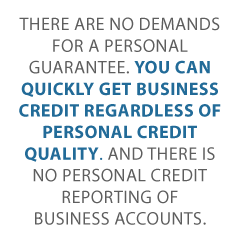
The Top 10 Best Business Credit Cards With No Annual Fee
How Many Credit Cards With No Annual Fee Are Out There?
There are tons of credit cards with no annual fee! Some only had an introductory period, whereas others had no expiration date for this benefit.
Business Credit Cards and Annual Fees
In both the business and personal credit worlds, annual fees are commonplace. To give the impression of more exclusivity, a card issuer might call them membership fees. But it’s the same thing.
Always consider annual fees when deciding whether to get a credit card. There’s a range of annual fees for business credit cards. They can run from a somewhat nominal $19 or so, to a double-take inducing $595.
For the cards we’re reviewing here, all of them offer no annual fee as a regular card feature. That is, none of these are introductory rates that will expire. But always read the fine print. Because if the APR is too high or the card provider is stingy with rewards or point or cash back, it may turn out that even a $0 annual fee isn’t enough to justify getting such a card. Let’s look at a variety of choices to fit different circumstances. Here’s our top 10 and two honorable mentions.
Business Credit Cards With No Annual Fee for Amazon Discounts
You can get Amazon discounts? Absolutely.
Honorable Mention: Amazon Prime Store Card
If your business shops at Amazon often, the Amazon Prime Store Card could be the card for you. You get a $60 Amazon gift card upon the approval of your application. Get 5% cashback on Amazon purchases. But limits seem to be low. There are reviews of this card on the Amazon website and you should check them before applying.
Business Credit Cards With No Annual Fee for Bonus Points with a Low Minimum Spend
Honorable Mention: Bank of Hope Business Rewards Visa® Credit Card
With the Bank of Hope Business Rewards Visa® Credit Card, you pay a 3% balance transfer fee which will never be less than $5. You can earn 5,000 bonus points after spending $1,000 in the first three months. Earn triple points on gas. Get double points on travel and dining. Earn one point per dollar on all other purchases.
Pay a 0% introductory APR for nine months. Then pay a variable APR 12.49%, 16.49% or 20.49% per creditworthiness after introductory period ends. It should be easy for most entrepreneurs to meet the spend necessary for the points bonus.
Triple points on gas are rather helpful if yours is a business requiring a lot of time on the road (say, trucking). If your credit is good enough to get the lowest APR after the introductory period ends, this could be a great card for you.
Business Credit Cards With No Annual Fee for a Bonus with No Minimum Spend
But a low minimum spend only gets an honorable mention. This is because we found a card where you can get a bonus with no minimum spend.
#10: Mechanics Bank Visa Business Real Rewards
With the Mechanics Bank Visa Business Real Rewards card, you get 1.5 points per month per dollar. Earn 2,500 bonus rewards points after your first purchase. Pay a 0% introductory APR for purchases and balance transfers for the first six billing cycles. Then pay 13.99-22.99% per creditworthiness. The bonus is decent and since there’s no minimum spend, it begs the question, can you get 2,500 bonus rewards points for buying a pack of gum?
Score the best business credit cards for your business. Check out our professional research
Business Credit Cards With No Annual Fee for Fair Credit
While the terms aren’t the best for this card, it can be tough to find a business credit card you can get if you’ve only got fair credit. Even rarer are such cards with no annual fee – where the annual fee doesn’t expire. This card hits all of those requirements.
#9: Capital One Spark Classic Business Credit Card (Visa)
Fair credit means you have FICO scores between 620 and 659. Capital One spells out that this card is for fair credit. Earn 1% cash back with every purchase, with no minimums. Pay a 26.99% variable APR for both purchases and cash advances. The lowest possible credit line $300.
For the Capital One Spark Classic Business Credit Card (Visa), the cash back percentage is low. And the interest rate is higher than for the other cards reviewed. But if your credit is only fair, or you don’t have a very long credit history, this card could be right for you.
Business Credit Cards With No Annual Fee for Members of the Armed Forces
This card has fantastic rates, but only a limited number of people will qualify.
#8: Navy Federal GO BIZ Rewards Card
Rewards Card
The Navy Federal GO BIZ Rewards Card is available as either a MasterCard or Visa. Benefits differ depending on which card type you choose. Get 1 point for each dollar spent but rewards depend on if you have a Visa or MasterCard. With a Visa, you get access to Visa SavingsEdge. With a MasterCard, you get a collision damage waiver.
Rewards Card is available as either a MasterCard or Visa. Benefits differ depending on which card type you choose. Get 1 point for each dollar spent but rewards depend on if you have a Visa or MasterCard. With a Visa, you get access to Visa SavingsEdge. With a MasterCard, you get a collision damage waiver.
Pay no foreign transaction fees. There is no earnings cap. The APR can be as low as Prime+ 5.90%. You can get GO BIZ Rewards – points you can redeem for gift certificates, cash deposited into your savings account, and more.
Rewards – points you can redeem for gift certificates, cash deposited into your savings account, and more.
Note: this card comes from a credit union. You must be a member first. The only persons who can be members of the credit union are persons attached to the military, the Department of Defense, or the National Guard and their families. If you can qualify for this card, the interest rate is stellar. And it isn’t just for an introductory period.
Business Credit Cards With No Annual Fee for a Long 0% APR Introductory Period
Not surprisingly, we felt the two Chase cards were a dead even tie. If we had to choose, we would pick Business Cash. This is because the cash back rewards seem to be more generous.
#6 (tie): Chase Bank Ink Business Unlimited®
Chase Bank Ink Business Unlimited® is a similar card to Chase Bank Ink Business Cash®, below. Except the rewards come in the form of cash back versus points. Get $750 bonus cash back if you spend $7,500 in the first 3 months after account opening. And get 1.5% cash back unlimited.
Pay a 0% APR on purchases for the first 12 months after account opening. Then pay 13.24-19.24% per creditworthiness. The balance transfer APR is 13.24-19.24% per creditworthiness. If you have several computers or other expensive equipment to buy, get it fast to take advantage of the cash back bonus.
#6 (tie): Chase Bank Ink Business Cash®
For a long 0% APR introductory period, and somewhat decent interest rates, check out this card. Pay 0% APR on purchases for the first 12 months. And then pay 13.24-19.24%.
With the Chase Bank Ink Business Cash® card, you get 5% cash back on the first $25,000 you spend on certain business products i.e. office supply stores, internet, cable, and phone services.
This works out to 4% additional cash back rewards on top of 1% cash back rewards earned on each purchase. The $25,000 flat spending limit resets every year. You can get $750 bonus cash back if spend $7,500 in the first 3 months after account opening.
It’s a bit difficult to hit the spend amount. Still, the agreement does not prohibit using your card to buy pricier items, such as plane tickets, vehicle repairs, or even heavy equipment. Still, you may find that using other means, such as equipment financing or fleet credit, would make for a better deal for your business.
Business Credit Cards With No Annual Fee for Travel
Business credit cards for travel can often be black and white for business owners. You either need one … or you don’t. If your business requires that you fly regularly, then read on.
#5: PNC Travel Rewards Visa Business Credit Card
With the PNC Travel Rewards Visa Business Credit Card , you get one mile per dollar in eligible net purchases. Earn double miles on the first $2,500 in eligible net purchases. Book your own travel and then redeem miles for a statement credit. No foreign transaction fees on purchases outside US. Pay a variable APR, 10.99- 19.99%, per creditworthiness.
The APR is good if your credit makes you eligible for the lower end of the spectrum. A statement credit for acting as your own travel agent is good, if you have the time to book your own travel. Double miles are welcome but it’s easy for a business owner to exceed the cap.
Business Credit Cards With No Annual Fee for Managing an SBA Express Loan
Much like with the travel credit card we just recommended, you either need this card, or you don’t.
#4: Zions Bank SBA Express Business Visa Debit Card
The unique Zions Bank SBA Express Business Visa Debit Card has floored us! Because – why doesn’t every SBA Express lender do things this way? Use this card to manage SBA Express loan money from Zions Bank, if you are already have an approval.
Get travel accident insurance and other credit card perks, which you would not normally get from an SBA Express loan. This card is best for SBA Express borrowers. If you’re an SBA Express borrower (or want to become one), we could not find a downside to getting this card.
Business Credit Cards With No Annual Fee for a High Credit Limit
High credit limits can be tempting. But business owners may be able to make up shortfalls with online lending, using several smaller credit cards together, or other forms of financing like merchant cash advances.
A high credit limit, though, is a lot easier to keep track of than a number of cobbled-together solutions.
#3: Zions Bank Visa Amazing Rate Business Credit Card
Pay a 0% introductory APR for the first six months. Then pay 10.24% variable. Limits to $250,000. The Zions Bank Visa Amazing Rate Business Credit Card has a good upper limit and the post-introductory APR is very good.
But note that most of the cards under review did not list their upper credit limits.
Score the best business credit cards for your business. Check out our professional research
Business Credit Cards With No Annual Fee for Significant Bonus Points
Bonus points, of course, are only good if you’re going to use them.
#2: Union Bank Business Preferred Rewards Visa Credit Card
With the Union Bank Business Preferred Rewards Visa Credit Card, you get 50,000 introductory reward points bonus when you spend $5,000 in the first three months. Get quintuple points per dollar spent to $25,000 annually on select business expenses. These are office supplies, utility bills, telecom services. And get one point per dollar spent above that.
Get double points for each dollar spent up to $25,000 annually on gas stations and restaurants. Plus, get one point per dollar spent above that. And get one point per dollar spent on everything else.
Pay a 0% introductory APR for the first six months. Then pay a 11.99-20.99% variable APR. This card has a great introductory points offer. And the amount you have to spend to get it isn’t bad.
Score the best business credit cards for your business. Check out our professional research
Business Credit Cards With No Annual Fee for a Good Cash Back Percentage Rate
Our number one card had a great cash back percentage which you can get for a significant amount of annual spending. And the cash back percentage doesn’t seem to have an expiration date. The other thing that attracted us to this card was a somewhat low APR, if you’ve got good personal credit. If your personal credit isn’t so great, then our #3 choice has a better APR with no expiration date.
#1: Huntington Bank MasterCard Voice Business Credit Card
With the Huntington Bank MasterCard Voice Business Credit Card, you earn 4% cash back on the first $7,000 spent per quarter. This is in one category of your choice. There is a choice of 10 categories. Hence the annual spend limit for 4% cash back is $28,000. If you annually charge $28,000, you’ll get a cool $1,120 back.
Earn 1% cashback on all other purchases.
Pay no foreign transaction fee. Pay a 10.99-21.99% APR per creditworthiness, which ties to the Prime Rate. If you know you won’t meet the spend limit, and your credit is already good so the APR is low, this can be an outstanding card.
Takeaways
There are a lot of business credit cards with no annual fee. You can get high cash back percentages. Or you can get high limits, or even bonuses. And you can even manage an SBA Express loan. Choose the option which works best for you. You don’t have to settle!
The post The Top 10 Best Business Credit Cards With No Annual Fee appeared first on Credit Suite.




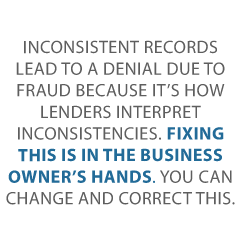
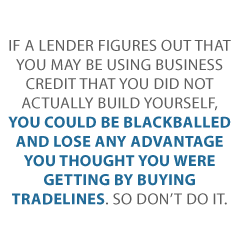
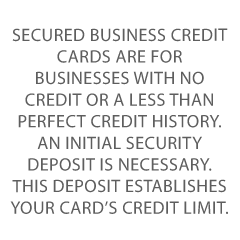

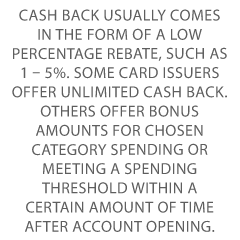
 Mastercard®
Mastercard®